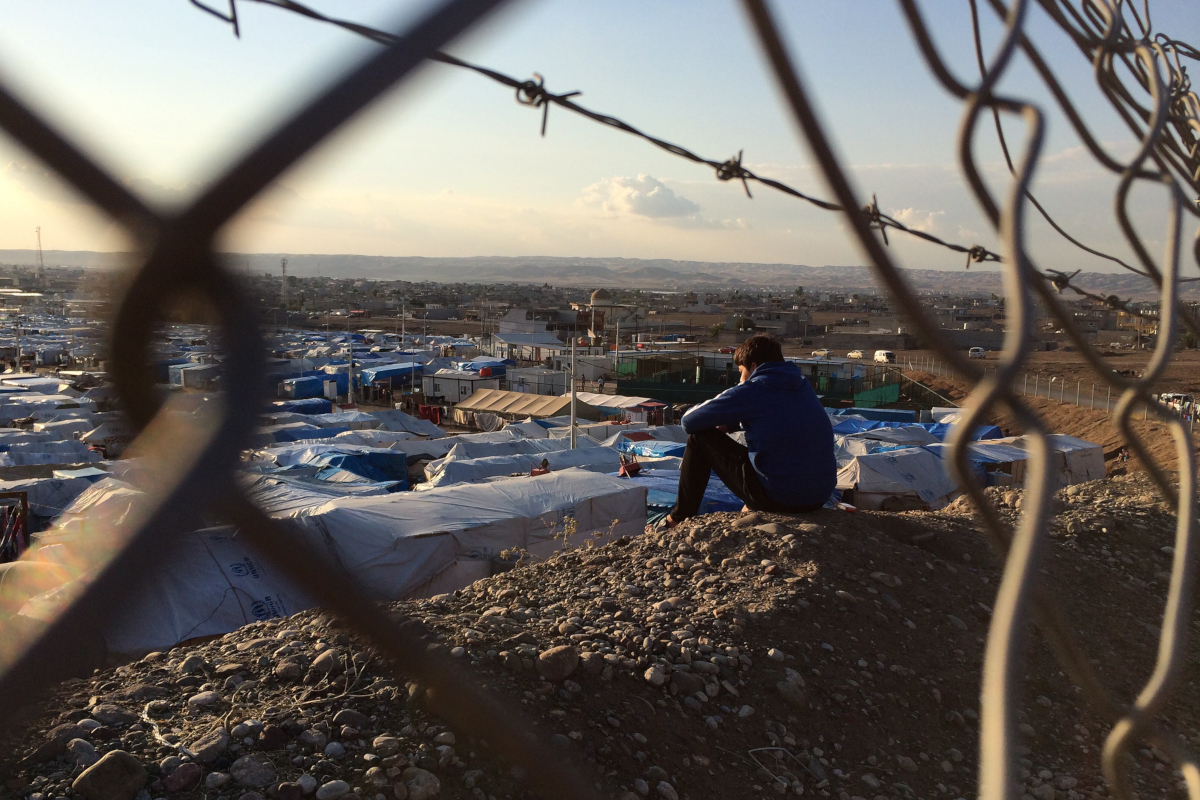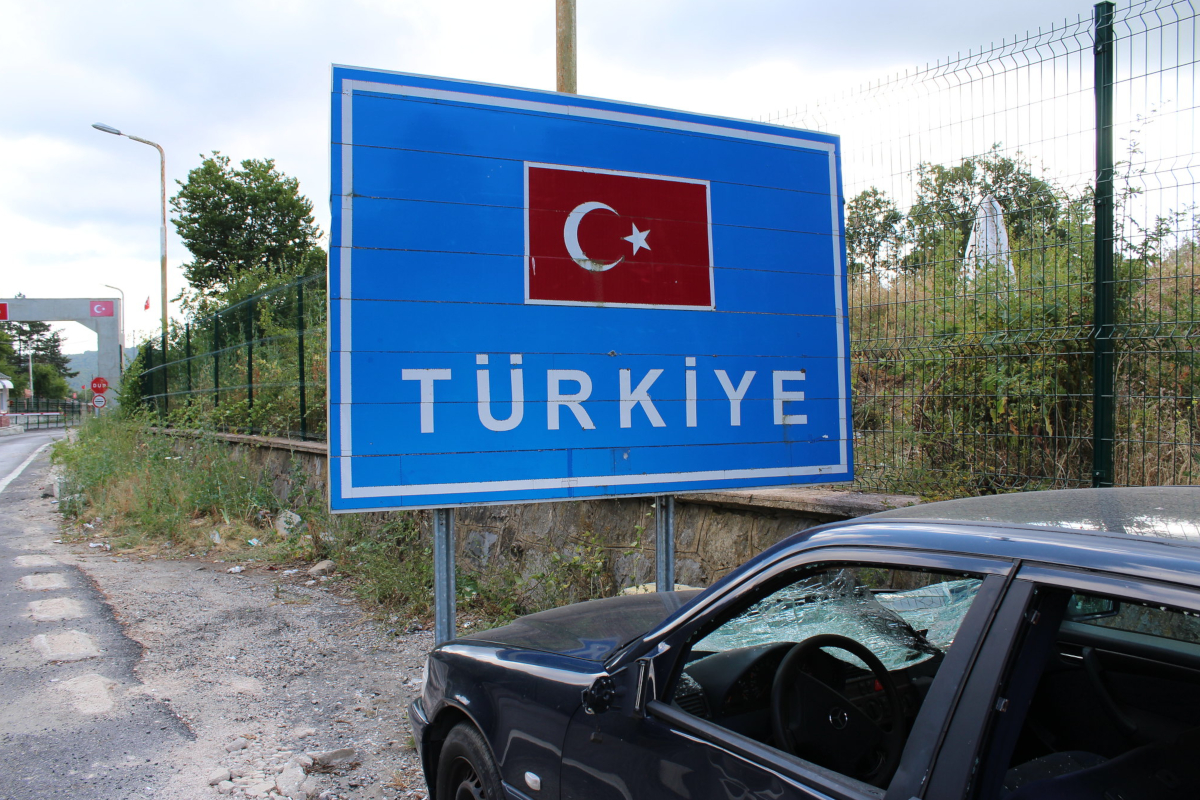Matter
Nation/Area
27 October 2023
In a letter to the European Council trumpeting the EU’s efforts to regulate migration, European Fee president Ursula von der Leyen highlighted the supply of vessels and help to coast guards in Libya and Tunisia, the place refugee and migrant rights are routinely violated.
An EU mission trains coast guards in Libya. Picture: European Exterior Motion Service, CC BY-NC-ND 2.0
The letter (pdf) states:
“…we have to construct up the capability of our companions to conduct efficient border surveillance and search and rescue operations. We’re offering help to many key companions with tools and coaching to assist stop unauthorised border crossings. All 5 vessels promised to Libya have been delivered and we see the affect of elevated patrols. Beneath the Memorandum of Understanding with Tunisia, we have now delivered spare components for Tunisian coast guards which are retaining 6 boats operational, and others will probably be repaired by the tip of the 12 months. Extra is predicted to be delivered to international locations in North Africa within the coming months.”
What it doesn’t point out is that vessels delivered to the so-called Libyan coast guard are used to conduct “pullbacks” of refugees to brutal detention situations and human rights violations.
In the meantime in Tunisia, the coast guard has been conducting pullbacks of people that have subsequently been dumped in distant areas close to the Tunisian-Algerian border.
Based on testimony offered to Human Rights Watch (HRW)¸ a gaggle of people that had been intercepted at sea and introduced again to shore had been then detained by the Nationwide Guard, who:
“…loaded the group onto buses and drove them for six hours to someplace close to the town of Le Kef, about 40 kilometers from the Algerian border. There, officers divided them into teams of about 10, loaded them onto pickup vehicles, and drove towards a mountainous space. The 4 interviewees, who had been on the identical truck, mentioned that one other truck with armed brokers escorted their truck.
The officers dropped their group within the mountains close to the Tunisia-Algeria border, they mentioned. The Guinean boy [interviewed by HRW) said that one officer had threatened, “If you return again [to Tunisia], we’ll kill you.” One of many Senegalese youngsters [interviewed by HRW] mentioned an officer had pointed his gun on the group.”
Von der Leyen doesn’t point out the truth that the Tunisian authorities refused an preliminary disbursement of €67 million supplied by the Fee as a part of its greater than €1 billion package deal for Tunisia, which the nation’s president has referred to as “small” and mentioned it “lacks respect.” The EU’s ambassador to Tunisia has mentioned that the refusal “speaks to Tunisia’s impatience and want to hurry up implementation” of the deal.
The letter additionally emphasises the necessity to “set up a strategic and mutually helpful partnership with Egypt,” in addition to offering extra help to Türkiye, Jordan and Lebanon. The letter hints on the motive why – Israel’s bombing of the Gaza strip and a possible exodus of refugees – however doesn’t point out the problem straight, merely saying that “the pressures on companions in our instant neighborhood threat being exacerbated”.
It seems that the implications reasonably than the causes of any actions of Palestinian refugees are the primary concern. Conclusions on the Center East agreed by the European Council final evening demand “fast, secure and unhindered humanitarian entry and help to succeed in these in want” in Gaza, however don’t name for a ceasefire. The European Council as an alternative “strongly emphasises Israel’s proper to defend itself in step with worldwide legislation and worldwide humanitarian legislation.”
Extra surveillance, new legislation
Different plans talked about within the letter embrace “elevated aerial surveillance” for “combatting human smuggling and trafficking” by Operation IRINI, the EU’s army mission within the Mediterranean, and elevated help for strengthening controls at factors of departure in North African states in addition to “factors of entry by migrants at land borders.”
The Fee additionally desires elevated motion towards migrant smuggling, with a proposal to revise the 2002 Facilitation Directive “to make sure that felony offences are harmonised, property are frozen, and coordination strengthened,” in order that “those that have interaction in unlawful acts exploiting migrants pay a heavy worth.”
It seems the proposal will come similtaneously a migrant smuggling convention organised by the Fee on 28 November “to create a International Alliance with a Name to Motion, launching a course of of standard worldwide alternate on this continually evolving crime.”
Deportation cooperation
Plans are within the works for extra coordinated motion on deportations, with the Fee proposing to:
“…work in groups with Member States on focused return actions, with a lead Member State or Company for every motion. We are going to develop a roadmap that might concentrate on (1) making certain that return choices are issued similtaneously a destructive asylum choices (2) systematically making certain the mutual recognition of return choices and follow-up enforcement motion; (3) finishing up joint identification actions together with by means of a liaison officers’ community in international locations of origin; (4) supporting coverage dialogue on readmission with third international locations and facilitating the issuance of journey paperwork, in addition to acceptance of the EU laissez passer; and (5) organising assisted voluntary return and joint return operations with the help of Frontex.”
Cooperation on authorized migration, in the meantime, will probably be finished by member states “on a voluntary foundation,” with the letter noting that any affords made must be conditional on elevated cooperation with EU deportation efforts: “native funding and alternatives for authorized migration should go hand in hand with strengthened cooperation on readmission.”
Extra funds
For all this to occur, the letter calls on the European Council to make it possible for “migration priorities – each on the inner and exterior dimension – are mirrored within the mid-term evaluation of the Multiannual Monetary Framework,” the EU’s 2021-27 funds.
Mid-term revision of the funds was mentioned on the European Council assembly yesterday, although the conclusions on that time merely state that there was an “in-depth alternate of views,” with the European Council calling on the Council of the EU “to take work ahead, with a view to reaching an total settlement by the tip of the 12 months.”
Documentation
Additional studying
The EU is pushing for a “non-binding instrument” with Iraq so as “to extend Iraq’s cooperation on readmission” – that’s, acceptance of deportations.
A dialogue paper circulated on 26 September by the Spanish Presidency proposes a swap within the exterior dimension of migration from “a reactive to a preventive mannequin”. In actuality it seems that that is little greater than doubling down on current plans. The paper was circulated to tell dialogue on the Justice and Dwelling Affairs Council assembly final week.
The European Fee is about to make €600 million out there to “considerably help Member States with border management and technological tools,” and “a primary goal” for that cash “can be the important thing border between Bulgaria and Turkiye,” says a letter to the European Council from Fee President Ursula von der Leyen.




